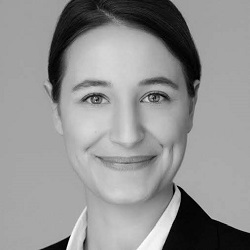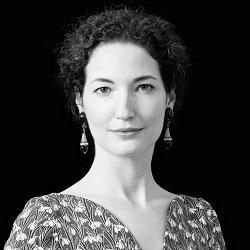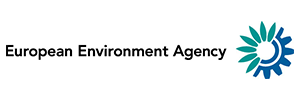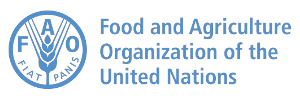In a nutshell

Teams from Austria, Italy and Greece are the winners of EU Datathon 2019
The 3rd edition of the EU Datathon culminated on 13 June 2019 with the final in Brussels, where 12 teams pitched their skills and ideas against each other to win 3 different challenges.
The challenge for the 12 finalists (selected from 99 entries across Europe) was to develop apps that offer new services or insights, using data made available by the EU institutions. The competition was organised by the EU’s Publications Office, in partnership with the Romanian Presidency of the EU Council.
The 3 winning teams were awarded EUR 15,000 each. The runners-up in each challenge won EUR 7,000 and the third-placed teams EUR 3,000.
The winners

The winning team in challenge 1 – ‘Innovative ideas through EU open data’ – was ‘The Smartfiles Network’, from Austria. This team won over the judges by making EU and national court rulings accessible from any PDF, helping people to understand the evolution and connectedness of case law.
‘Euromaps’ (from Belgium) won the second prize, ‘Politicindex’ (from Germany) won the third prize and ‘EY/EU Funds predictive forecasting impact analytics’ (from Italy) won the fourth prize.

The winning team in challenge 2 – ‘New insights into economics and finance’ – was ‘EconCartography: Economic Cartography for the European Union’, from Italy. This team provides intuitive and interactive visualisations to explore the complex landscape of the EU economy.
The second place went to the Finnish team ‘Investment Info’. The French team ‘Bizmap’ came in third place and the Spanish team ‘EnvyRState’ came in fourth place.

The winning team in challenge 3 – ‘Tackling climate change’ – was ‘Chloe Irrigation Systems’, from Greece. This team created a promising platform that monitors and optimises irrigation to reduce water waste and cost while increasing crop yield.
‘The Blue Time Machine (BTM)’ (from Spain) won the second prize, ‘MindYourFoot’ (from Belgium) won third prize and ‘ODCCI (Open Data Climate Change Insights)’ (from Germany) won fourth prize.
Agenda, 13 June 2019
| Opening | ||
|---|---|---|
| 9.30 |
 |
Ready, set, go! Amaze us, Datathoners! Tibor Navracsics (European Commissioner for Education, Youth, Sport and Culture) |
 |
In data diversity we thrive Marius Adrian Madar (Secretary of State, Secretariat-General of the Romanian government) |
|
| Challenge 1: ‘Innovative ideas through EU open data’ | ||
| 10.00 |
 |
Our data and your skills in service of EU citizens Norbert Hohn (Assistant to the Director-General, Publications Office of the EU) |
| Finalists showcase their apps | ||
| Break | ||
| Challenge 2: ‘New insights into economics and finance’ | ||
| 11.45 |
 |
Digital transformation in economics and the shared economy Per Nymand-Andersen (Adviser to senior management, European Central Bank) |
| Finalists showcase their apps | ||
| Break | ||
| Challenge 3: ‘Tackling climate change’ | ||
| 14.00 |
 |
Wind, water, fire, earth, heart: The importance of combining heterogeneous data to tackle climate change Alexandra BALAHUR (Joint Research Centre of the European Commission, Project Officer) |
| Finalists showcase their apps | ||
| Break | ||
| Keynote speeches | ||
| 16.00 |
 |
Data crunching: From information to visual alphabets Federica Fragapane (Visual and information designer) |
 |
Data, machines and creativity Andreas Refsgaard (Interaction designer) |
|
| Break | ||
| Award ceremony | ||
| 17.00 |
 |
Keep on innovating with EU open data Rudolf Strohmeier (Director-General, Publications Office of the EU) |
| Awarding of prizes to winners | ||
Speakers

Jennifer Baker
Moderator
EU tech policy reporter

Alexandra Balahur
European Commission
Project Officer

António Carneiro
Publications Office of the EU
Acting Director-General

Federica Fragapane
Visual and information designer

Norbert Hohn
Assistant to the DG
Publications Office of the EU

Tibor Navracsics
European
Commissioner

Marius Adrian Madar
Secretary of State
Romania

Per Nymand-Andersen
Adviser
European Central Bank

Andreas Refsgaard
Interaction
designer

Rudolf Strohmeier
Director-General
Publications Office of the EU
Jury members

António Carneiro
Publications Office of the EU
Acting Director-General

Louise Corselli-Nordblad
Team leader
Eurostat

Suzanne Dael
Expert
EEA

Xavier Desurmont
Head of sector
Publications Office of the EU

Björn Döhring
Head of unit
European Commission

Esther Huyer
Consultant
Capgemini Consulting

Reka Mazur
Digital and social media lead
European Investment Fund

Petr Mooz
Senior expert
European Commission

Per Nymand-Andersen
European Central Bank
Adviser

Larisa Panait
Adviser
Secretariat-General

Jürgen Pfeffer
Professor
University of Munich

Veronica Stefan
Founder
Digital Citizens Romania

Roland Strauss
Managing partner
IncubatorEurope

Nathan Wanner
Statistician
FAO

Peter Yates
Team leader
European Investment Bank

Agnieszka Zając
Publications Office of the EU
Head of sector
Challenge 1:
Innovative ideas through EU open data
Euromaps
Description of app: Welcome to data storytelling through the map of Europe. Discover burgeoning phenomena, from climate to demographics, trade or the EU’s budget. #seethefacts
Datasets: DG BUDG, ESTAT
EY/EU Funds predictive forecasting impact analytics
< Description of app: A predictive analysis in order to forecast the future impact of EU funds expenditure in the Member States, using five socio-economic variables.
Datasets: ESIF, ESTAT
Politicindex
Description of app: A platform that summarises the promises and achievements of politicians. The comparison between promises and performance can be filtered.
Datasets: German election data, EP
The Smartfiles Network
Description of app: We make EU and national case law accessible from any PDF, which leads to a deeper understanding of the evolution and connectedness of case-law.
Datasets: Austrian law data, CURIA, EUR-Lex, E-Justice, EuroVoc
Challenge 2:
New insights into economics and finance
Bizmap
Description of app: This project proposes a decision-making tool that would enable small to medium-sized enterprises to visualise the most economically attractive EU regions for their international expansion.
Datasets: ECB, ECFIN, ESTAT
EconCartography
Description of app: We create network-based maps of European economies to identify growth opportunities and promote EU inclusiveness and cohesion.
Datasets: ESTAT, International Trade Centre
EnvyRState
Description of app: Complete tool for visualising and analysing different effects of the real-estate market on the environment. It includes heat maps, graphics and the determination of conclusions in a continuously updated system.
Datasets: ESTAT
Investment Info
Description of app: The app uses and compiles investment and macroeconomic data to produce an overview of the investment atmosphere and to make forecasts.
Datasets: Alpha Vantage, EC, ECB, ESTAT, OECD
Challenge 3:
Tackling climate change
Chloe Irrigation Systems
Description of app: Chloe is a platform that monitors and optimises irrigation using artificial intelligence. Our goal is to reduce water waste and cost while increasing crop yield.
Datasets: Copernicus, International Water Management Institute, JRC
MindYourFoot
Description of app: The tool, ‘MindYourFoot’, is a people-oriented digital solution to achieve measurable emission reductions by raising awareness and advising people on ways to act.
Datasets: DG ENER, DG GROW, EDP, EEA, ESTAT, OECD, JRC
ODCCI
Description of app: We leverage data science and open data to enable future generations to fight climate change through the power of technology and education.
Datasets: ECDC, EDP, EEA, ESTAT, JRC
The Blue Time Machine
Description of app: The Blue Time Machine is a digital representation of the past, present and future conditions from our 'blue planet' to tackle climate change.
Datasets: Copernicus, EMODnet
Webinars
Webinar 1
Webinar 2
Webinar 3
Webinar 4
Webinar 5
Rules
OUTLINE
What is the EU Datathon 2019?
The Publications Office of the European Union and the Romanian Presidency of the Council of the European Union are the organisers of the EU Datathon 2019, which is a competition intended to highlight the potential of linking EU data and national data as well as to promote innovation and digitalisation opportunities by using open data. The availability of these open datasets can be characterised as ‘big data’ requiring data science skills.
Participants are invited to develop applications, visualisations and insights using at least one dataset produced by the EU Institutions, Agencies and bodies available on the EU Open Data Portal and combine it with at least one dataset on the European Data Portal, the European Central Bank, Eurostat Website and the Food and Agriculture Organization of the United Nations (FAO).
The competition is supported by the European Parliament’s Preparatory Action “Linked Open Data in the European Public Administration” and the European Commission ISA² programme (Interoperability solutions for public administrations, businesses and citizen).
The partners of the EU Datathon 2019 are:
- Eurostat;
- The European Central Bank;
- The European Commission’s Directorate-General for Budget;
- The European Commission’s Directorate-General for Economic and Financial Affairs;
- The European Commission’s Directorate-General for Energy;
- The European Environment Agency;
- The European Investment Bank;
- The European Investment Fund;
- The Food and Agriculture Organization of the United Nations;
- The Joint Research Centre of the European Commission.
What are the objectives?
- To find new suitable approaches and solutions through the use of open data to an identified need or problem.
- To produce innovative applications, including visualisations.
- To showcase opportunities for a:
- concrete business model,
- social enterprise, or
- reusability concept for the open data community.
- To apply big data methodology for generating new insights.
- To stimulate the use of open data issued from public administrations.
WHO CAN PARTICIPATE?
The rules are based on Article 206 and 207 of the financial regulation. The competition will respect the principles of transparency and equal treatment.
- The EU Datathon 2019 is open to anyone (statisticians, economists, researchers, computer programmers, data journalists, data community activists, data scientists, graphic and interface designers, IT project managers, university students and PhD students, etc.) who is interested in creating a profit or non-profit (social) business model through data exploration and/or in creating open data prototype products based on open and public data.
- The EU Datathon 2019 is open to teams based in the EU or in European Free Trade Association countries. Teams can be composed of one or more individuals, one or more companies or one or more other legal entities.
- Finalists from the EU Datathon 2017 and EU Datathon 2018 can only participate with a new project for this year’s competition.
- The EU Datathon 2019 is not open to staff working in the EU Institutions, Agencies, bodies and partnering organisation.
THE CHALLENGES
The EU Datathon 2019 consists of one horizontal challenge and two thematic challenges. Each challenge is organised as a separate competition of equal importance, under the umbrella of the EU Datathon competition (separate registration, shortlisted teams, presentations, and prizes).
Teams may participate in any of the following three challenges but with only one proposal per challenge.
Challenge 1: ‘Innovative ideas through open data’
- Condition: combine at least one dataset from the EU Open Data Portal with one from the European Data Portal or any other dataset (open or not).
- Goal: create innovative ideas through open data.
Challenge 2: ‘New insights in economics and finance’
- Condition: combine at least one dataset from the European Central Bank, the European Commission's Directorate-General for Budget, the European Commission's Directorate-General for Economic and Finance, the European Investment Bank, the European Investment Fund or Eurostat with data from any other data source (open or not), such as the EU Open Data Portal and/or the European Data Portal.
- Goal: create a new insight, business models or business concept through open data.
Challenge 3: ‘Tackling climate change’
- Condition: combine at least one dataset in the domain of climate change and environment from the EU Open Data Portal with one from the European Data Portal, Eurostat, the European Commission's Directorate-General for Energy, the European Environment Agency, the FAO and/or the Joint Research Centre of the European Commission or any other dataset (open or not).
- Goal: create a new business model or business concepts through open data in the domain of climate change and environment.
What should the result be?
The result should be a new, original mobile or web application, visualisation or demonstration of applying data science by linking datasets for generating new insights. The result should address a need or problem of free choice and present its relevance in context. Explanatory webinars will be set up for participants to obtain more information on the features and datasets of the challenges.
CLARIFICATIONS
Participants may request any clarification on the competition up to 5 working days before the deadline of the submission.
Requests for clarification should be submitted in writing to the following email address: op-datathon@publications.europa.eu.
All questions and answers will be published on the EU Datathon 2019 website.
EVALUATION
The evaluation process will consist of two phases: preselection and final selection.
Phase 1 — Preselection
Preselection will take place after the deadline of the submission of project descriptions.
Project descriptions within each challenge will be evaluated by an independent preselection jury that shall be composed of experts from within and outside the EU institutions and agencies.
During this phase, the jury will assess each submitted proposal against the preselection award criterion (see table below). For each challenge a maximum of four teams having scored the highest number of points will be preselected. All teams will be notified about the results of the preselection of the challenge they took part in.
| Preselection award criterion | Maximum number of points | |
|---|---|---|
| 1 |
Relevance
|
20 |
Phase 2 — Final selection
The preselected teams (maximum four per challenge) will be invited to develop their applications which must be submitted 1 week before the final event and then present them in Brussels during the conference held on 13 June 2019. Structure and training for the presentations will be offered if needed.
The final applications within each challenge will be evaluated by one final jury, which will be composed of at least five experts from within and outside the EU Institutions and Agencies.
The applications will be evaluated against the following final award criteria.
| Final award criteria | Maximum number of points | |
|---|---|---|
| 1 |
Relevance
|
10 |
| 2 |
Open data reuse
|
40 |
| 3 |
Solution proposed
|
40 |
| 4 |
Excellence
|
10 |
|
Total |
100 |
TIMELINE
Step 1— Launch of competition
The EU Datathon 2019 is published on the Publications Offices website on 28 January 2019.
The competition starts with explanatory webinars addressing the three different challenges and will allow teams to learn more about the datasets they are interested in.
Step 2 — Submission of project descriptions
Teams register their project descriptions for their mobile or web application using the online registration form at the latest by 23:59:59 (CET) on 24 March 2019.
Step 3 — Notification of shortlisted teams
The project descriptions are assessed by the jury of the preselection phase. All participating teams will be notified about the results within their challenge via email by 5 April 2019.
Step 4 — Submission of the application
Shortlisted teams should submit their final proposals for evaluation by 7 June 2019 to the Publications Office via the following email address: op-datathon@publications.europa.eu.
Step 5 — Final conference in Brussels
The preselected teams (represented by a maximum of two members) are invited to the final conference in Brussels on 13 June 2019, which will include:
- presentations and demonstrations of the proposal by the teams followed by Q&A;
- speeches from international open data experts on relevant topics;
- announcement of the winners and awards ceremony.
PRIZES
The prize money is EUR 75 000 in total (EUR 25 000 for each challenge) and will be split in the following order for each challenge.
| Place | Prize money |
|---|---|
| 1 | EUR 15 000 |
| 2 | EUR 7 000 |
| 3 | EUR 3 000 |
The payments of prizes are subject to the registration of the winners in the legal entity (LEF) and bank account file (BAF) database of the European Commission. For this purpose, after being notified of the prize winners are required to provide the necessary supporting documents duly signed and stamped where necessary. Additional information as well as the forms for the creation of the LEF/BAF can be downloaded here.
The Publications Office and any partners take no responsibility regarding the distribution of the prize money within the teams.
Shortlisted teams are entitled to the reimbursement of travel and accommodation expenses incurred in relation to the conference provided that they have been purchased on the day of the notification of the shortlisted teams at the earliest and on the day of the conference at the latest. No other costs will be reimbursed. Further details will be sent via e-mail.
CANCELLATION
The Publications Office reserves the right to terminate the competition before the final conference without any obligation to indemnify the teams.
OTHER RULES
Participation in other competitions
The teams must inform the Publications Office when submitting their proposal if their application has participated in another competition. Awarding a prize twice for the same application is not allowed.
Intellectual property and copyright
In case teams use pre-existing material (such as open source) for their applications, they must guarantee that they have obtained all the necessary authorisations in order for such material to be used according to the rules described above.
The project description (short description of the idea) submitted for the preselection will remain the property of the teams (authors) and will not be made public (or disclosed), but will be accessible to the jury.
The final proposals submitted for the final selection will remain the property of the authors but will be accessible to the jury and to all teams at the final conference. The EU institutions, agencies and bodies will be allowed to mention, describe and promote on their channels (websites, social media, press releases, etc.) the winning applications with due reference to the author without any further economic compensation.
Publicity
The winning applications will be featured in the ‘Applications’ section of the EU Open Data Portal. Where appropriate, the name and copyright of the authors will be mentioned.
Processing of personal data
All personal data contained in the entry shall be processed in accordance with Regulation (EU) 2018/1725 of the European Parliament and of the Council of 23 October 2018 on the protection of natural persons with regard to the processing of personal data by the Union institutions, bodies, offices and agencies and on the free movement of such data, and repealing Regulation (EC) No 45/2001 and Decision No 1247/2002/EC. Such data shall be processed by the Publications Office solely in connection with the implementation and follow-up of the entry of the winner, without prejudice to a possible transmission to the bodies in charge of a monitoring or inspection task in accordance with European Union legislation.
Teams may, upon written request, gain access to their personal data and correct any information that is inaccurate or incomplete. They should address any questions regarding the processing of their personal data to the Publications Office via the contact e-mail announced in the rules of the competition. The teams may, at any time, lodge a complaint against the processing of their personal data with the European Data Protection Supervisor. On the EU Datathon website, the Publications Office will publish the name of the winning teams and of their members, their locality, the prize amount and the nature and purpose of their applications. Participants may request that the Publications Office waive such a publication if disclosure risks threatening their security and safety or if it could harm their commercial interest.
Sole liability of the teams
Neither the Publications Office nor the partners may be held responsible for any claim relating to the activities carried out by teams in the framework of the competition.
Neither the Publications Office nor the partners shall be held liable for any damages caused or sustained by any of the teams, including any damages caused to third parties as a consequence of or during the implementation of the activities related to the competition.
Applicable law and competent jurisdiction
The competition is governed by the applicable European Union law complemented, where necessary, by the law of the Grand Duchy of Luxembourg. The General Court or, on appeal, the Court of Justice of the European Union, shall have sole jurisdiction to hear any dispute between the EU and any team concerning the interpretation, entry or validity of the rules of this competition if such a dispute cannot be settled amicably.
Exclusion criteria and administrative sanctions
By submitting the project description teams declare that they are not in one of the situations mentioned in Articles 136-140 and 141 of the financial regulation. Teams who are in any of those situations shall be excluded from participating and from being awarded a prize under the present competition.
Early Detection and Exclusion System
In case the participants are in one of the exclusion situations as stated above, personal data on them may be registered in the Early Detection and Exclusion System (EDES) in line with the Articles 166, 142 and 143 of the financial regulation. For more information, see the privacy statement for EDES.
Checks and audits
The winning teams accept checks and audits by the European Commission, the European Anti-Fraud Office and the Court of Auditors in relation to the competition and the prize received.
Promotion material
PRESS RELEASE
| Bulgarian | |
| Croatian | |
| Czech | |
| Danish | |
| Dutch | |
| English | |
| Estonian | |
| Finnish | |
| French | |
| German | |
| Greek | |
| Hungarian | |
| Irish | |
| Italian | |
| Latvian | |
| Lithuanian | |
| Maltese | |
| Polish | |
| Portuguese | |
| Romanian | |
| Slovak | |
| Slovenian | |
| Spanish | |
| Swedish |
IMAGES
 |
|
 |
|
 |
|
 |
|
 |
|
 |
|
 |
|
 |
|
 |
|
 |
|
 |
|
 |
|
 |
|
 |
|
 |
|
 |
|
 |
|
 |
|
 |
|
 |
|
 |
|
 |
|
 |
|
 |
|
 |
|
 |
|
 |
|
 |
|
 |
|
 |
|
 |
|
 |
|
 |
|
 |
Any questions?











































































































